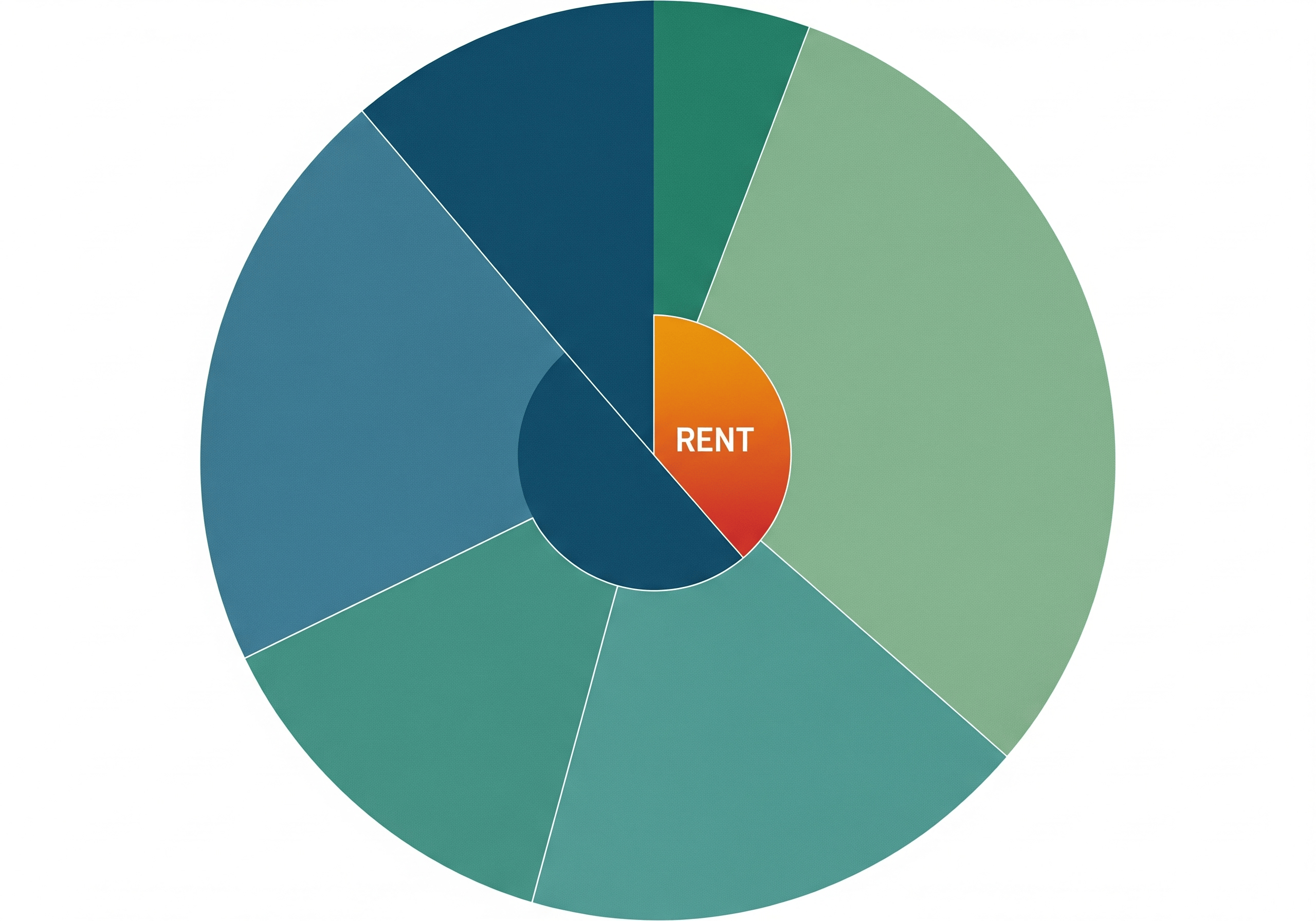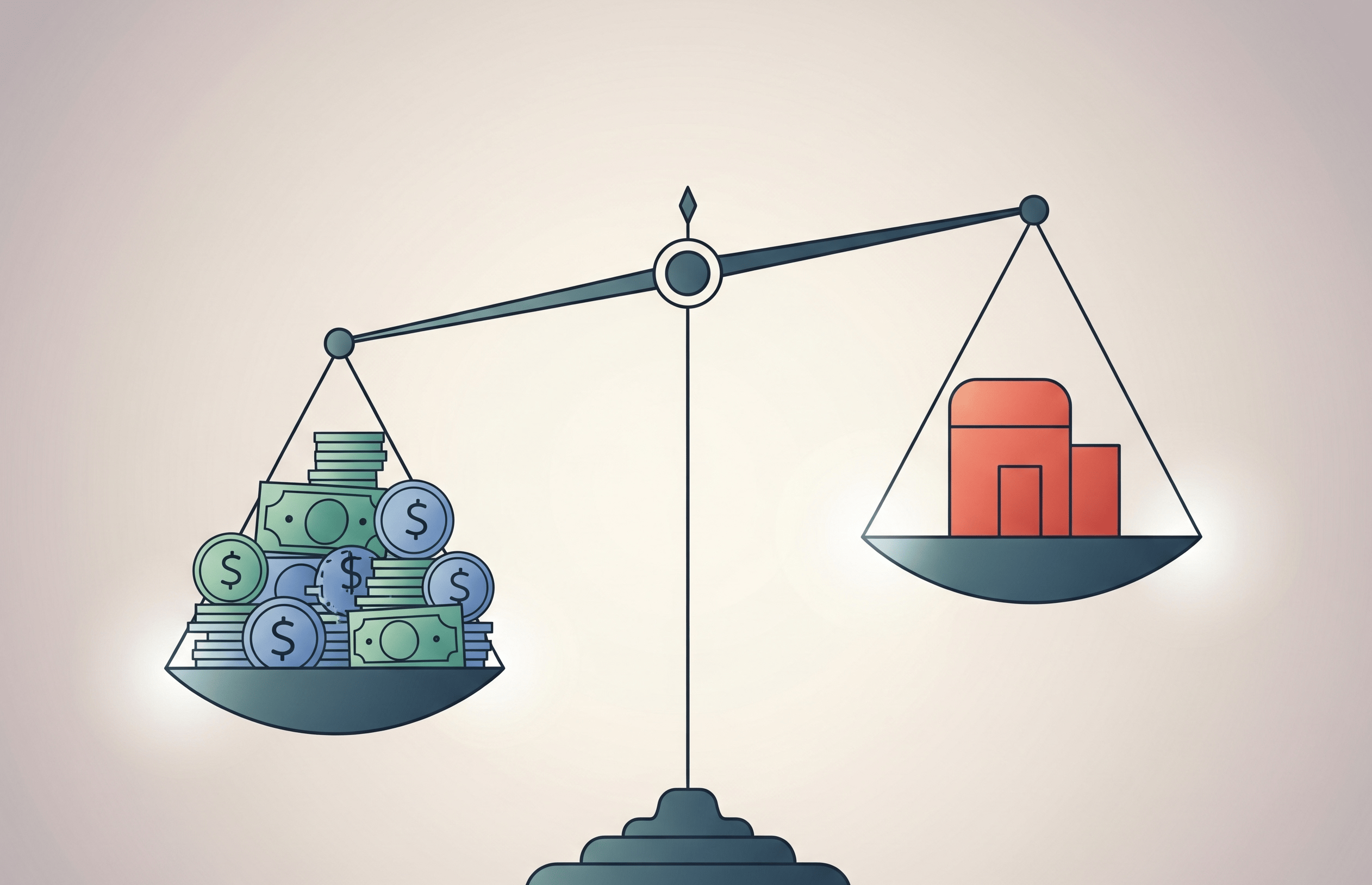Rent controls more than where you live-it influences how much you save, how much debt you carry, and how close or far you are from financial stability. If you've ever asked yourself, "How much should rent be of income?"- you're not alone. The typical answer is 30%. That's the old-school budgeting rule that says no more than a third of your gross income should go toward rent. But that number doesn't always match the realities of the rental market, especially in cities with high costs or wages that haven't kept up.
Whether living paycheck to paycheck or mapping out a future with more financial freedom, understanding your rent-to-income ratio is a smart move. It's not about fitting into a rigid formula- it's about creating space in your budget for what matters.
The 30% Rule (and Where It Breaks Down)
Let's start with the basic guideline when looking at "how much should rent be of income": don't spend more than 30% of your gross monthly income on rent. If you bring in $4,000 a month before taxes, the math says you should aim for $1,200 or less in rent.
It's a good place to begin, but not always where the story ends. The 30% figure was created decades ago, and much has changed. Rent has outpaced income in most major cities, leaving people paying 35%, 40%, or even 50% of their take-home pay to stay housed.
There's also the 28/36 rule, which is used more in lending. It says no more than 28% should go to housing and 36% to total debt. It's a useful benchmark, but it can feel out of reach for renters juggling student loans, credit cards, or inconsistent income.
What Americans Are Paying
Across the country, renters spend between 25% and 33% of their income on rent. But averages don't tell the whole story. Nearly 40% of renters are considered "cost-burdened"-which means more than 30% of their income goes toward housing.
In states like Florida or California, that number climbs even higher. Over half of renters in those areas fall into the cost-burdened category. Even in smaller markets, rising rents are forcing people to stretch beyond what traditional guidelines would recommend.
You're not alone if rent is eating more than a third of your income. But it's worth exploring how that affects the rest of your financial life and what options might help ease the squeeze.
When Rent Feels Too High
If your rent feels unmanageable, there's usually a ripple effect when considering "how much should rent be of income." You might delay saving for emergencies, fall behind on bills, or raise more debt to keep up. That pressure adds up fast-mentally and financially.
The rent burden hits hardest when it leaves no breathing room. You need enough space in your budget to handle the basics and make forward progress- whether that's paying off debt, building savings, or boosting your credit.
If rent keeps you stuck in survival mode, it's time to look at the numbers and ask: Is this sustainable?
Budgeting for Rent That Works
Instead of sticking to a percentage, try building a budget that reflects your complete financial picture. The 50/30/20 rule is a great framework:
- 50% goes to needs-rent, utilities, groceries
- 30% goes to wants-dining out, entertainment, extras
- 20% goes to savings and debt repayment
If rent alone takes up more than half your income, the rest of your budget has to stretch. This is where people often get stuck, sacrificing long-term goals to stay housed.
That's why budgeting isn't about cutting corners-it's about setting yourself up to thrive.

What About Credit? Does Rent Help?
Most people are surprised that rent doesn't usually appear on your credit report. Even if you've never missed a payment, it won't help your score unless it's being reported. Some services let you report your rent payments to credit bureaus, but not all landlords participate. That's where products like Cheers Credit Builder can fill the gap.
How Cheers Credit Builder Can Help
When you pay rent each month, it can feel like your money disappears into the void. With Cheers Credit Builder, your monthly payments do something for you. Cheers reports your payments to all three major credit bureaus, helping you build a substantial payment history- the single most significant factor in your credit score. There's no credit check to sign up; you don't need a credit card to participate. You pick a plan, make your monthly payments, and when your term ends, you get the money back minus the low 1% monthly interest.
It's a way to stay consistent, build your score, and grow savings simultaneously. You can start building credit on day one, not a month later- like most programs.
Cheers is not a bank—deposit account held by Sunrise Bank, Member FDIC.
When Should You Check Your Credit Score?
When considering "how much rent should be of income," keeping an eye on your credit score becomes even more critical. Your score affects whether you qualify for better apartments, lower security deposits, and, later on, home loans.
Check your credit score at least once a month. Most banks and credit card companies offer free credit score tools, and you can get free reports at AnnualCreditReport.com. If you're using Cheers, you'll add a positive credit history with each payment.
How Much Should Rent Be of Income?
If your score is strong, you're in a good position to negotiate better lease terms or move toward homeownership. If it needs improvement, stay consistent. Focus on on-time payments, low balances, and adding new tradelines like Cheers Credit Builder to your report.
When considering "how much should rent be of income," it doesn't have to be a financial setback. With the right tools, it can be a stepping stone.















